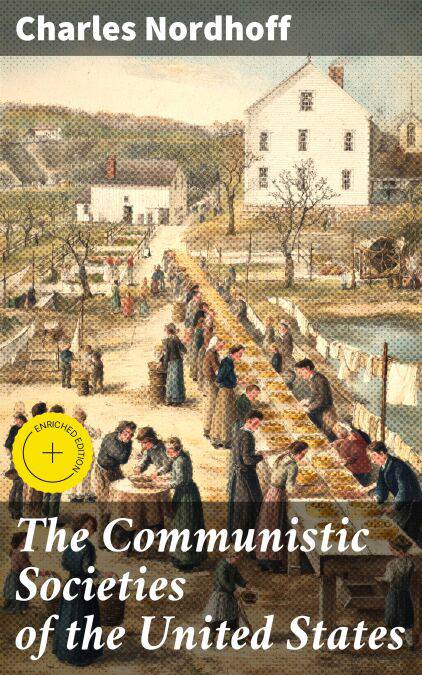
- Retrait en 2 heures
- Assortiment impressionnant
- Paiement sécurisé
- Toujours un magasin près de chez vous
- Retrait gratuit dans votre magasin Club
- 7.000.0000 titres dans notre catalogue
- Payer en toute sécurité
- Toujours un magasin près de chez vous
The Communistic Societies of the United States EBOOK
Enriched edition. From Personal Visit and Observation
Charles Nordhoff
Ebook | Anglais
0,49 €
Format
Description
In "The Communistic Societies of the United States," Charles Nordhoff embarks on an exhaustive exploration of various communal living experiments that flourished in America during the 19th century. Adopting a journalistic yet analytical style, Nordhoff delves into the social, economic, and ideological tenets of diverse groups such as the Shakers, Oneida Community, and the Amana Colonies. His thorough examinations are framed within the broader context of American societal shifts in post-industrialization, presenting an intricate tapestry of idealism versus pragmatism. Nordhoff's balance of observational narrative with critical insight provides a nuanced understanding of these societies' ambitions and challenges, making the book both a historical document and a sociological inquiry. Charles Nordhoff, a prominent journalist and social reformer of his time, was influenced by the burgeoning movements advocating for utopian societies across the United States. This background led him to investigate the viability of communal living as an alternative to the burgeoning capitalist ethos. His firsthand experiences and empathetic engagement with these communities allow him to deliver a compelling narrative that remains relevant amidst contemporary discussions on community and sustainability. This text is highly recommended for readers interested in American social history, utopian studies, and the interplay between community and individuality. Nordhoff's meticulous research and profound insights invite readers to reflect on the successes and failures of these groups, prompting a reevaluation of modern communal aspirations.
In this enriched edition, we have carefully created added value for your reading experience:
- A succinct Introduction situates the work's timeless appeal and themes.
- The Synopsis outlines the central plot, highlighting key developments without spoiling critical twists.
- A detailed Historical Context immerses you in the era's events and influences that shaped the writing.
- A thorough Analysis dissects symbols, motifs, and character arcs to unearth underlying meanings.
- Reflection questions prompt you to engage personally with the work's messages, connecting them to modern life.
- Hand‐picked Memorable Quotes shine a spotlight on moments of literary brilliance.
- Interactive footnotes clarify unusual references, historical allusions, and archaic phrases for an effortless, more informed read.
In this enriched edition, we have carefully created added value for your reading experience:
- A succinct Introduction situates the work's timeless appeal and themes.
- The Synopsis outlines the central plot, highlighting key developments without spoiling critical twists.
- A detailed Historical Context immerses you in the era's events and influences that shaped the writing.
- A thorough Analysis dissects symbols, motifs, and character arcs to unearth underlying meanings.
- Reflection questions prompt you to engage personally with the work's messages, connecting them to modern life.
- Hand‐picked Memorable Quotes shine a spotlight on moments of literary brilliance.
- Interactive footnotes clarify unusual references, historical allusions, and archaic phrases for an effortless, more informed read.
Spécifications
Parties prenantes
- Auteur(s) :
- Editeur:
Contenu
- Nombre de pages :
- 379
- Langue:
- Anglais
Caractéristiques
- EAN:
- 4064066165598
- Date de parution :
- 15-12-19
- Format:
- Ebook
- Protection digitale:
- Digital watermarking
- Format numérique:
- ePub

Seulement chez Librairie Club
Les avis
Nous publions uniquement les avis qui respectent les conditions requises. Consultez nos conditions pour les avis.





